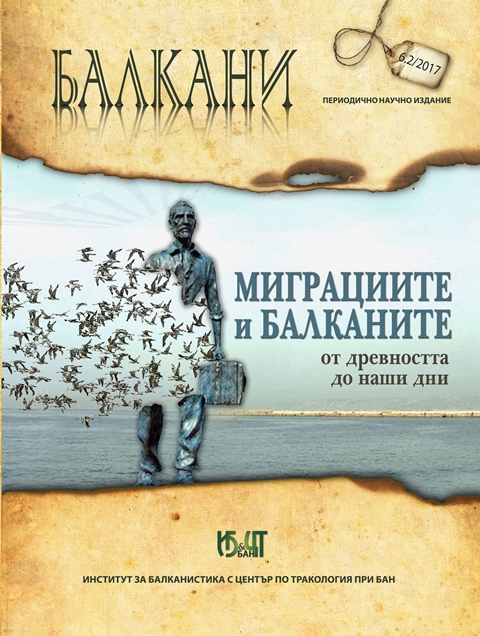ОТНОШЕНИЕТО ЦЕНТЪР – ПЕРИФЕРИЯ/ЕВРОПЕЙСКИ ЗАПАД – ЕВРОПЕЙСКИ (ЮГО)ИЗТОК КАТО МОТИВ В ПРОЗАТА НА АВТОРИ-МИГРАНТИ ОТ БАЛКАНИТЕ
THE RELATIONSHIP CENTRE-PERIPHERY/EUROPEAN WEST-EUROPEAN (SOUTH)EAST AS A MOTIF IN THE PROSE OF IMMIGRANT AUTHORS FROMTHE BALKANS
Author(s): Darina FelonovaSubject(s): Social Sciences, Language and Literature Studies, Studies of Literature, Sociology, Comparative Study of Literature, Bulgarian Literature, Greek Literature, Romanian Literature, Migration Studies, Theory of Literature
Published by: Институт за балканистика с Център по тракология - Българска академия на науките
Keywords: Vassilis Alexakis; Dumitru Tsepeneag; Julia Kristeva; the Balkans; between the East and the West; immigrant authors from the Balkan region; the Other;
Summary/Abstract: The paper analyses the writing of three authors who emigrated from the Balkans and settled in France in 1960s and 1970s. – Vassilis Alexakis (of Greek descent), Dumitru Tsepeneag (of Romanian descent) and Julia Kristeva (of Bulgarian descent). It aims to present the intermediate position of these immigrant authors in Western European environment in regard to the constituent components of their new identity – an intermediate position that allows them to examine the processes simultaneously from the “outside” and the “inside” and to generate bidirectional interpretations and literary images. The issues are further compounded by the inherent “crossroad” and “transitory” geopolitical characteristics of the Balkans, often thought of as a border region between the East and the West. From this point of view, the immigrant authors from the Balkan region appear to have a very complex existence, in which two kinds of duality intertwine – the one imposed by migration, and the other imposed by the “marginalization” and “uncertainty” of the Balkans when it comes to their European status. Because of these peculiarities, the three writers construct in their novels a variety of models for imagining the “native” and the “foreign”, the centre (European West) and the periphery (European Southeast), and the Other.
Journal: БАЛКАНИ
- Issue Year: 6/2017
- Issue No: 2
- Page Range: 85-93
- Page Count: 9
- Language: Bulgarian

